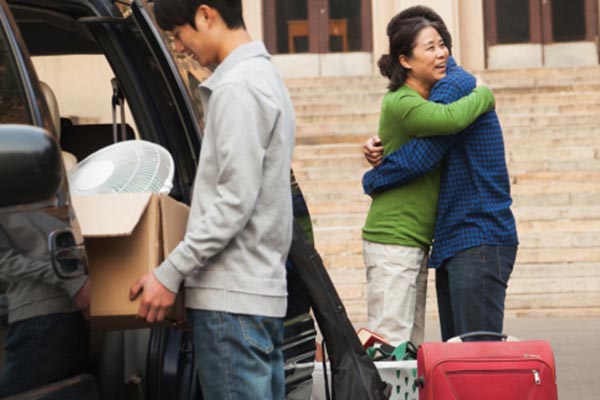Going to Canada checklist
You picked your new city, you found your program and now you’re getting ready to come to Canada. This Study in Canada pre-departure checklist will help you plan all the steps you need to take.
Pre-Departure Checklist to Study in Canada
- Accept your offer to study in Canada. Check out study in Canada timeline to know when.
- Apply for a new passport or ensure that your current passport will be valid for at least 6 months after your return date to your home country. You need a valid passport to apply for scholarships to study in Canada.
- Apply for a study permit or travel/work visa.
- Buy your airline ticket to Canada.
- Buy travel and health insurance.
- Get copies of your medical and immunization records.
- Arrange for housing. You can request on-campus housing at your college or university before you leave your home country. If you’re going to look for private housing, you may wish to do that when you arrive in Canada.
- Arrange transportation to and from the airport at home and in Canada.
- Plan your banking needs. Consider setting up your Canadian bank account in advance or buying traveller’s cheques. Get a small amount of Canadian cash before departure and pack your credit card.
- Find out about your baggage limitations and customs requirements so you can plan your packing.
- Make sure you have all documents you need from your educational institution(s).
- Learn as much as you can about Canada and the town or city where you will be living and studying.
- Contact your Canadian school, college or university with any questions you have about enrolling in classes, your first week, finding accommodation, etc.
Scan or make photocopies of important documents to pack in your baggage, to leave at home and to send to your email address, including:
- Passport
- Airline tickets
- Travel insurance certificate
- Letter of Acceptance by the educational institution;
- Key addresses and phone numbers
- A bank statement showing proof of funds
- Prescriptions for any medication you are carrying
- Traveler’s cheques – if applicable
- Medical and immunization records
- Academic history and university transcripts
The above are all necessary pre-departure Checklist to mark before going to Study in Canada.
Once You Land

Homesickness
Homesickness is a predictable problem faced by most students at one point or another. It may occur at the beginning or even well into your year. Homesickness will pass. Be patient. Give it at least two weeks. If you are feeling sad, talk about it and share your feelings with your friends. Do not hide in your room; if you do, the homesickness will only worsen. Find your counselor on staff with whom you can talk about homesickness or other problems.
Homesickness might be made worse by frequent, long telephone calls home. Most homesick students feel more homesick after a call home than they did before they picked up the phone. Try to limit yourself to one call home every week. The sooner you integrate into the university experience, the sooner your homesickness will pass.
Your first few weeks in Canada
The first weeks of the first semester are a busy time for every new international (and Canadian) student during which everyone is learning about the campus and classes while making new friends. You should take the time to get to know your University:
- Explore campus to familiarize yourself with where you need to go when registering for your program, attending classes, getting your meals and visiting new friends.
- Join the International Student Club.
- Find out what learning resources and workshops are available for international students.
- Get your student identification card: it will be your passport around the campus. (if applicable)
- Take advantage of the student services on offer: use the fitness facilities at the recreation center, find the student bookstore and browse in the library.
Learn basic cooking
Cooking for yourself will save you money. Your native food might be expensive in Canada. Making it on your own will satisfy your urge to eat ‘your food’ during moments of ‘homesickness’.
You may also be interested in our questions to consider when applying abroad guide.
























